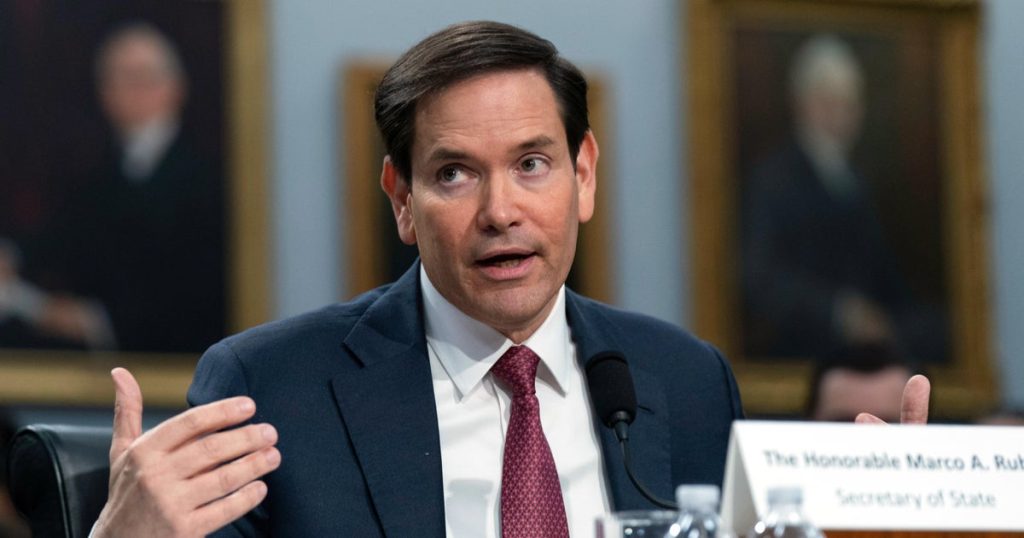In a significant policy shift, the State Department has suspended the scheduling of new student visa appointments. This decision coincides with the Trump administration’s plans to enhance social media screenings for visa applicants. As international students await guidance on future appointments, existing interview schedules remain intact, though the new measures signal a tightening of restrictions and vetting processes in the U.S. immigration system.
| Article Subheadings |
|---|
| 1) Suspension of New Student Visa Appointments |
| 2) Expanded Social Media Screening Protocol |
| 3) Implications for International Students |
| 4) Recent Legal Challenges |
| 5) Broader Impact on U.S. Immigration Policy |
Suspension of New Student Visa Appointments
The U.S. State Department has ordered embassies and consulates globally to halt the scheduling of new student visa appointments. This decision was communicated in an official cable issued by Secretary of State Marco Rubio. The directive requests that diplomatic posts refrain from adding any new appointments for student and foreign exchange visas, effectuating a temporary pause until further notice. While this decision may bring uncertainty for prospective international students, those who have already scheduled interviews will still be able to proceed with their visa applications.
The timing of this announcement comes as the government prepares to implement heightened vetting procedures for visa applicants. According to the cable, the pause on appointments is necessary to manage the anticipated changes effectively. The Department’s response is indicative of a broader shift in immigration policy aimed at reinforcing national security measures.
Expanded Social Media Screening Protocol
With a focus on security, the State Department is preparing to introduce a more rigorous vetting system that includes extensive scrutiny of social media profiles for all student visa applicants. This initiative is part of a broader strategy to ensure that individuals entering the United States do not pose a security risk.
In a statement, a senior official from the State Department confirmed the upcoming changes, noting that the enhanced social media checks will have “significant implications” for how embassies and consulates process visa applications. The intention behind the new screening measures is to better ascertain the character and intentions of applicants, especially in light of increasing concerns over national security.
Implications for International Students
The suspension of new appointments and the impending social media screening measures will have far-reaching implications for international students. Many students eager to study in the U.S. rely on timely visa processing to secure their place in American universities. Long delays and extended timelines for appointments could lead to cascading effects on academic schedules and enrollment rates.
Moreover, students from countries where social media use is prevalent may face additional scrutiny and potential legal challenges. With the State Department emphasizing the seriousness of vetting processes, applicants may also have concerns regarding privacy and the broader implications of having their social media activity monitored. The added layer of vetting creates an atmosphere of uncertainty for many prospective students and raises questions about the future of academic freedom within the international community.
Recent Legal Challenges
This announcement is not without legal complications. Recently, the Department of Homeland Security communicated to institutions like Harvard University that they could no longer enroll international students due to alleged ties with antisemitic activities on campus. Critics of this approach argue that such claims are unsubstantiated and indicative of a flawed legal interpretation.
Additionally, the Trump administration has faced pushback against its efforts to deport certain students, particularly those engaged in pro-Palestinian activism. Legal representatives for these individuals argue that the revocation of visas violates the First Amendment rights of these students, challenging the administration’s stance on national security. A recent court ruling blocking these deportations emphasizes the contentious nature of new immigration policies being enforced under the current administration.
Broader Impact on U.S. Immigration Policy
The recent changes in policy reflect a troubling trend in U.S. immigration practices, particularly regarding non-immigrant visa programs. The Trump administration has taken a proactive approach to immigration controls, often introducing measures that critics see as overly restrictive.
In summary, the combination of social media screenings and the suspension of new student visa appointments highlights an evolving climate in which international students may face additional barriers to entry. The government’s actions raise serious questions about the balance between national security and the country’s long-standing commitment to open and accessible education for international students.
| No. | Key Points |
|---|---|
| 1 | The U.S. State Department has suspended scheduling new student visa appointments amidst increased vetting efforts. |
| 2 | Enhanced social media screening is set to be implemented for all student visa applicants. |
| 3 | International students face potential delays that could affect their academic schedules. |
| 4 | Legal challenges are emerging against the administration’s restrictive immigration policies. |
| 5 | The changes reflect a broader shift towards stricter immigration practices that may hinder international student access. |
Summary
The suspension of new student visa appointments by the State Department signals a notable shift in U.S. immigration policy, emphasizing heightened security through expanded social media screenings. While current applicants can proceed with their interviews, future students face an evolving and uncertain landscape. The implications of these changes may resonate through academic communities, legal systems, and diplomatic interactions as the U.S. navigates its position on international student immigration.
Frequently Asked Questions
Question: What prompted the suspension of new student visa appointments?
The suspension was prompted by the State Department’s need to implement expanded social media screening measures for visa applicants, aiming to enhance national security.
Question: How will the new social media screening affect student visa applicants?
The new screening will examine applicants’ social media activity to assess potential security risks, which could complicate the visa application process for many international students.
Question: What are the implications of recent legal challenges regarding international students?
Recent legal challenges underscore the contentious nature of the administration’s policies, as courts are being asked to rule on the balance between national security and students’ rights.


